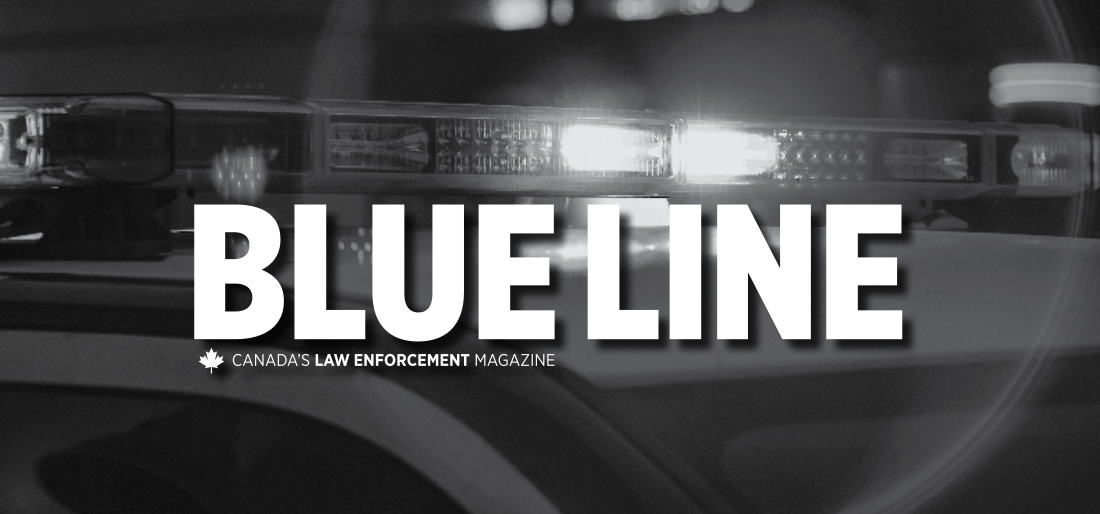
Features
Behavioural Sciences
The Police – Military Veterans Wellness Program: An update
June 5, 2023 By Peter Collins and Aaron Dale

In the November 2020 issue of Blue Line, Cst. Aaron Dale joined me as a co-author to introduce the newly created Military Veterans Wellness Program. That column was a departure from my usual Behavioural Sciences piece, as this will be, but as proud veterans of the Canadian Armed Forces (CAF), Cst. Dale and I want to provide an update of the program.
As stated in the Nov. 2020 column, there are over 649,300 military veterans in Canada, and some veterans have had difficulty readjusting once they leave the CAF. Transitioning to civilian life can be difficult but most will readjust without requiring assistance. Others have difficulties because they miss the exhilaration associated with a mission, feel a loss of order and structure the military provided them, feel a loss of identity and miss the camaraderie. Their sense of purpose is gone, and their military experience may not translate into marketable skills in the workplace.
Over 111,000 of these individuals have a disability that is physical and/or emotional. Of those who served in Afghanistan, 15 per cent are receiving pensions for posttraumatic stress disorder from Veterans Affairs Canada, and those are the only the ones who manage to navigate the system to receive a pension. More commonly veterans are suffering from major depressive disorders, anxiety disorders and substance use disorders. In addition, some have been diagnosed with a traumatic brain injury which, given the nature of combat in Afghanistan, has become the “signature injury” of modern warfare compared to past conflicts.
Although accurate numbers are difficult to discern, the suicide rate among veterans appears to be higher than the rest of the population.
In Canada, suicide rates among veterans appears to be higher than the rest of the population.
Cst. Dale and another Toronto Police Service (TPS) officer and CAF veteran, Cst. Jeremy Burns, developed the idea for the program in a police cruiser. Based on their collective experience as both veterans and police officers, they developed it to assist law enforcement in recognizing homeless veterans and address the high rate of veteran suicide. The TPS Command immediately supported the project with the assistance of myself (a forensic psychiatrist), as well as contributions from a defence research scientist and a clinical psychologist. Teaming up with Veteran’s Affairs Canada, the Royal Canadian Legion, the Operational Stress Injury Social Support program (OSISS) and others, the program launched in September 2022.
Why do police require information about outreach to veterans?
Police are in a unique situation as first responders, they must serve as advocates and referral sources for our veterans who require assistance. Many veterans who need help may not know where to go.
The Legion has the capability of providing veterans with first and last month’s rent (up to $3,000); food cards; an apartment start-up kit ($450); furniture/appliances; dental care referrals and follow-ups.
Veterans Affairs has the capability of providing emergency funds; an income replacement program; mental health support; physical health support; disability pension; education and much more. VAC case managers can assist the veterans who often experience “administrative fatigue” in dealing with agencies.
The Operational Stress Injury & Social Support program has the capability to connect a veteran to peer support anywhere in Canada.
Ideally, police officers who have served in the military can function as resources for their frontline colleagues and the hope is to identify military veterans throughout police services nation-wide.
Since the release of the program, 35 agencies from across Canada have been in conversation with the Toronto Police Service to take the program to their communities. The Waterloo Regional Police Service has fully adopted the program. Our goal is to have all law enforcement agencies, in Canada, utilize this program; it costs nothing but saves lives.
Also in Sep. 2022, the Department of Psychiatry at the University of Toronto appointed an academic and research Chair in Veterans Mental Health situated at Sunnybrook Heath Centre. Through the Chair, Dr. Janet Ellis, the MVWP team has partnered with Sunnybrook, the Centre for Addiction and Mental Health, the Canadian Armed Forces and Veterans Affairs Canada to conduct research on the effects of the program and further validate its success.
To date the program has assisted over sixty veterans who had encountered law enforcement while in crisis. All these interactions led to the veterans receiving care, compassion, and the connections they required to effectively access social services and medical support.
Law enforcement must do its part to protect the protectors and understand that nobody fights alone.
End note: Military Veterans Training program is available on the Canadian Police Knowledge Network (CPKN). If your agency would like to implement the MVWP easily into your service please contact TPSMilitaryWellness@Torontopolice.on.ca and request the entire program package which contains: the structural framework, training, source documentation, referral forms, letter of support, logic model and performance measurements for you to use.
Peter Collins is the operational forensic psychiatrist with the Ontario Provincial Police’s Criminal Behaviour Analysis Section. He is also a member of the crisis/hostage negotiation team of the Toronto Police Service Emergency Task Force. Dr. Collins’ opinions are his own. Contact him at peter.collins@utoronto.ca.
Cst. Aaron Dale joined the Toronto Police Service in 2018. Prior to that served in the Canadian Forces since 2002 and was with the Canadian Special Operations Regiment as a Special Forces Operator from 2013-2018. Contact him at aaron.dale@hotmail.com.
Print this page